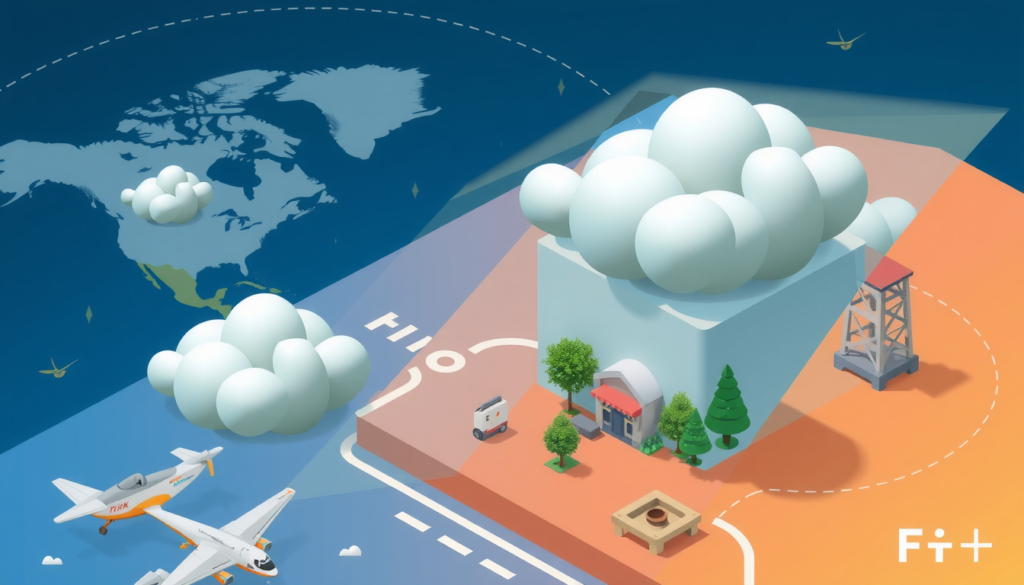Climate Change and Environmental Crisis: Confronting the Global Challenge
Climate change is one of the most pressing issues facing humanity today. Rising global temperatures, extreme weather events, and environmental degradation are transforming our planet at an alarming rate. From the melting of the polar ice caps to more frequent wildfires and hurricanes, the impact of climate change is already being felt across the globe.
This article explores the science behind climate change, its environmental and social impacts, and the global efforts to mitigate its effects.
The Science of Climate Change
Climate change refers to long-term changes in the Earth’s climate, particularly the increase in global temperatures due to human activities, primarily the burning of fossil fuels. This leads to higher levels of carbon dioxide (CO2) and other greenhouse gases in the atmosphere, which trap heat and cause the planet to warm.
The scientific consensus on climate change is clear: human activity is the primary driver. The Intergovernmental Panel on Climate Change (IPCC), a global authority on climate science, reports that human-induced global warming has already caused irreversible changes to the environment.
Environmental Impact of Climate Change
Climate change has significant environmental consequences. These include:
- Rising Sea Levels: As polar ice melts, the volume of water flowing into the oceans increases, causing sea levels to rise. This threatens coastal communities, increases the risk of flooding, and harms marine ecosystems.
- Extreme Weather Events: Climate change has led to an increase in the frequency and intensity of extreme weather events such as hurricanes, droughts, heatwaves, and floods. These events disrupt local economies and cause widespread devastation.
- Biodiversity Loss: As habitats change due to warming temperatures, many species struggle to adapt. This has resulted in a loss of biodiversity, with many species facing extinction due to altered ecosystems and environmental pressures.
- Ocean Acidification: Increased levels of CO2 are absorbed by the oceans, causing the water to become more acidic. This harms marine life, particularly coral reefs, shellfish, and other marine organisms that rely on calcium carbonate to build their shells and structures.
Social and Economic Consequences
The effects of climate change extend beyond the environment, impacting human societies in profound ways. These include:
- Displacement and Migration: Rising sea levels, droughts, and extreme weather events are displacing millions of people, creating climate refugees. This exacerbates existing geopolitical tensions and creates humanitarian crises.
- Food and Water Security: Climate change disrupts food production and access to clean water, particularly in vulnerable regions. Crop failures due to heat, drought, or flooding can lead to famine, while changing weather patterns affect the availability of freshwater resources.
- Health Risks: The spread of infectious diseases is facilitated by changes in climate. Warmer temperatures, flooding, and changes in ecosystems can increase the spread of diseases like malaria, dengue, and cholera.
- Economic Costs: Climate-related disasters are costing economies billions of dollars each year. Infrastructure damage, lost agricultural production, and increased healthcare costs contribute to the financial burden of climate change.
Global Efforts to Address Climate Change
In response to the growing threat of climate change, governments, organizations, and individuals around the world are working to mitigate its effects and adapt to the changing environment. Some of the most important global initiatives include:
- The Paris Agreement: The Paris Agreement, adopted in 2015, is an international treaty aimed at limiting global warming to well below 2°C above pre-industrial levels. It involves commitments from nearly every nation to reduce carbon emissions and increase investments in renewable energy and sustainable practices.
- Renewable Energy Transition: A major strategy for addressing climate change is transitioning from fossil fuels to renewable sources of energy like solar, wind, and hydropower. This shift reduces greenhouse gas emissions and provides a sustainable alternative to traditional energy sources.
- Climate Adaptation Plans: Countries and cities are developing strategies to adapt to the impacts of climate change. These plans include building resilient infrastructure, improving water management, and protecting vulnerable populations.
- Carbon Pricing and Market Mechanisms: Many countries have implemented carbon pricing mechanisms, such as carbon taxes or cap-and-trade systems, to incentivize industries to reduce their carbon emissions. These approaches aim to put a price on carbon pollution and encourage the adoption of cleaner technologies.
Challenges and Obstacles
Despite the progress made in addressing climate change, several obstacles remain:
- Political Resistance: Climate change is a highly politicized issue. In some regions, political leaders are reluctant to take action due to economic concerns, lack of public support, or lobbying by industries with vested interests in maintaining the status quo.
- Economic Inequality: Developing countries, which are often the most vulnerable to climate impacts, may lack the financial resources to mitigate and adapt to climate change. Global cooperation and financial support are crucial for addressing these inequalities.
- Technological Limitations: While renewable energy technologies have made significant progress, there are still challenges in scaling them to meet global demand. Furthermore, technologies for carbon capture and storage, and geoengineering remain in early stages of development.
Conclusion: A Collective Responsibility
Climate change is a global crisis that requires immediate and sustained action from all sectors of society. It is no longer just an environmental issue; it is an economic, social, and political challenge that affects every person on the planet. While the path forward is fraught with challenges, there is still hope. By working together, investing in sustainable solutions, and holding governments and industries accountable, we can create a more resilient and sustainable future for generations to come.
